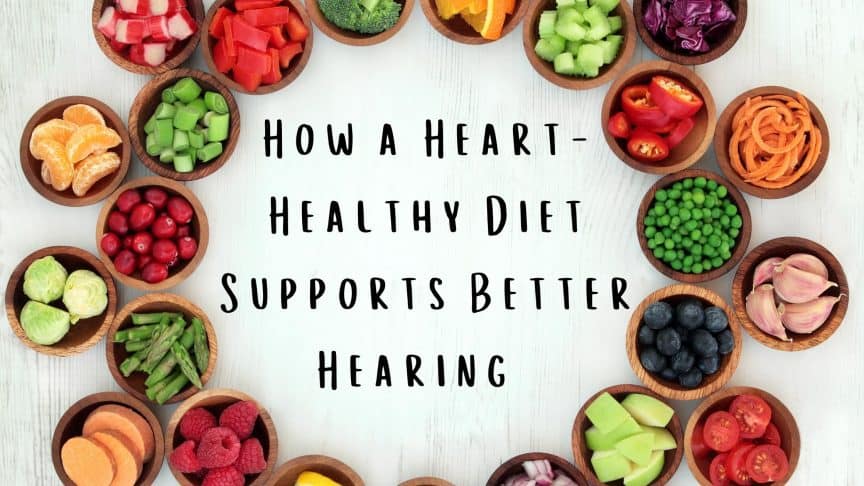- A Closer Look at Common Myths About Hearing Loss - May 7, 2024
- The Impact of Pets on Emotional and Hearing Health - April 26, 2024
- Strategies for Coping with Single-Sided Deafness - April 16, 2024
Many people could benefit from losing weight, particularly with the obesity epidemic in the United States at an all-time high (nearly 70% of Americans are overweight or obese). Weight loss, on the other hand, is difficult for a variety of reasons. Furthermore, some people are tempted to follow a “diet of the month” or a strategy they learned about online or from friends and family. Unfortunately, these diets are also not the healthiest, and even if they help you lose weight, they do not improve your health in the long run.
Is there any advantage to enhancing one’s diet consistency without losing weight? The answer is yes. A number of randomized controlled trials have shown that changing your diet will help you boost cardiovascular risk factors, including high blood pressure, LDL (bad) cholesterol, and triglycerides, as well as your overall health.
Doctors and scientists also believe that a balanced diet will protect your hearing health.
Healthy eating, healthy hearing
Until recently, many hearing professionals believed that hearing loss was a common and inevitable part of growing older. Recent research, on the other hand, suggests the contrary.
According to a Harvard Medical School study authored by Dr. Sharon Curhan, a healthy diet is one way to slow the progression of hearing loss, especially in women. Researchers tracked over 80,000 women for 26 years. They discovered that those with healthier diets were 47 percent less likely than those with poor diets to experience moderate to extreme hearing loss.
The same conclusion was reached in a 2017 study by researchers at Brigham and Women’s Hospital, who concluded that people who followed balanced diets like the DASH diet or the Alternative Mediterranean diet were much less likely to develop hearing loss (AMED). Women who followed these diets had a 30% lower chance of developing a hearing loss in the mid-frequency range. They were also 25% less likely to have higher frequency hearing loss.
Much further study is needed on the topic, and these findings are still far from being accepted as scientific evidence. Nonetheless, they are hopeful signs that eating well will lead to yet another positive outcome.
A healthy hearing diet
Diets rich in fresh fruits and vegetables and whole grains, beans, and lean meat are the healthiest. Hearing loss is less likely if you eat a heart-healthy diet. The alternative Mediterranean diet (AMED) and the Dietary Approaches to Stop Hypertension (DASH) diet are two of the most common heart-healthy diets.
The AMED emphasizes the value of eating fresh fruits and vegetables as an alternative Mediterranean diet. Good oils, including olive oil, nuts, whole grains, and legumes, are also included in the diet. This diet discourages the consumption of red meat and promotes the consumption of fish.
DASH stands for Dietary Approaches to Stop Hypertension. It helps people consume a lot of new fruits and vegetables. There are also fish, low-fat dairy, and lean meats on the menu. Sugar and sodium are limited in this diet.
Limiting sugar consumption is also emphasized in heart-healthy diets. Processed foods with a lot of sugar aren’t good for your heart, and sugary beverages should be avoided. If you have a sugar craving, it’s best to eat some fruit.
The nutrients that may improve your hearing health
Some vitamins and minerals can also aid in the maintenance of good hearing. These include:
- Magnesium: Magnesium has been discovered by dieticians to widen blood vessels and increase blood circulation, ensuring that your ears receive the blood they need.
- Folic Acid: Folic acid aids in the formation and maintenance of healthy cells in the body, such as the hair cells within the ear. It accomplishes this by assisting the body in the breakdown of homocysteine, a substance found in the blood.
- Zinc: Zinc is present in proteins such as beans, nuts, fish, and meat, and it has been shown to help the immune system. A robust immune system lowers the chances of getting infections and colds, including ear infections and colds.
Do you suffer from hearing loss?
Do you think you suffer from hearing loss? For a hearing test, make an appointment with us! We’ll help you learn more about your hearing health and suggest ways to help treat your hearing.

